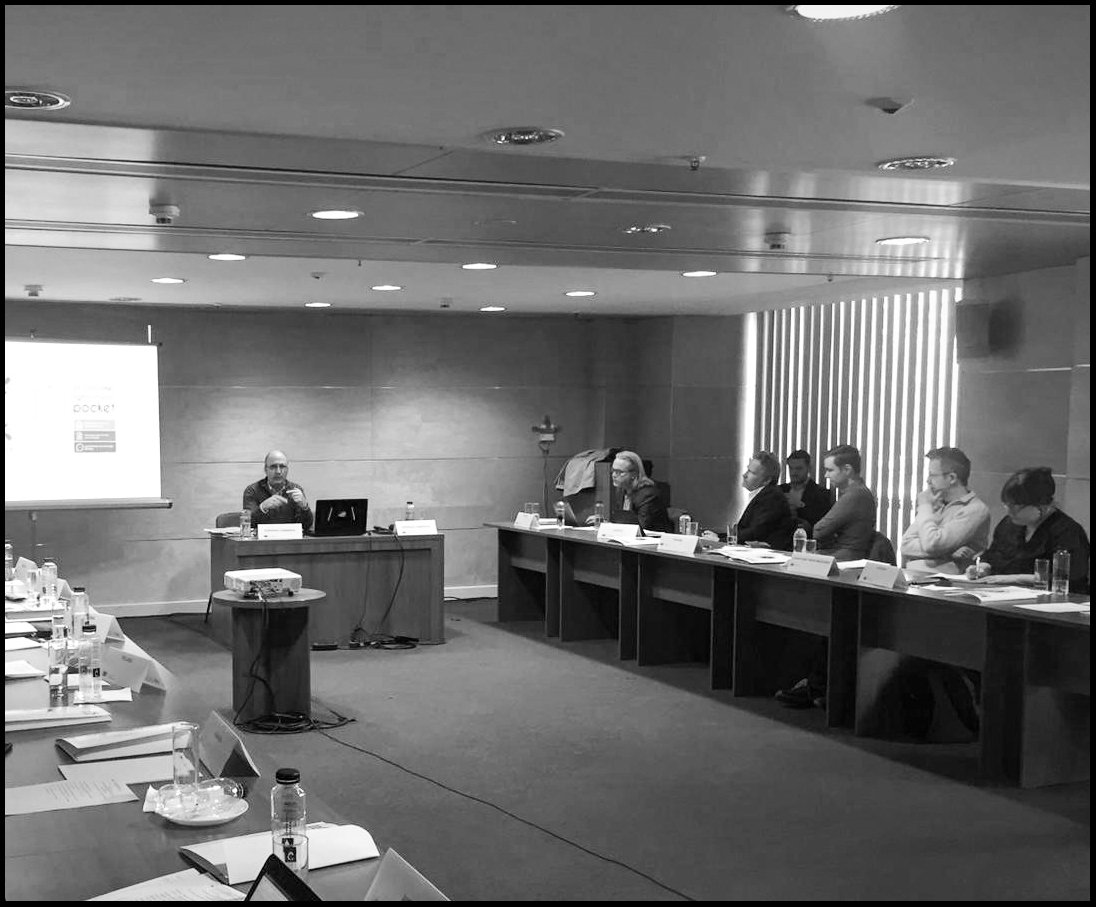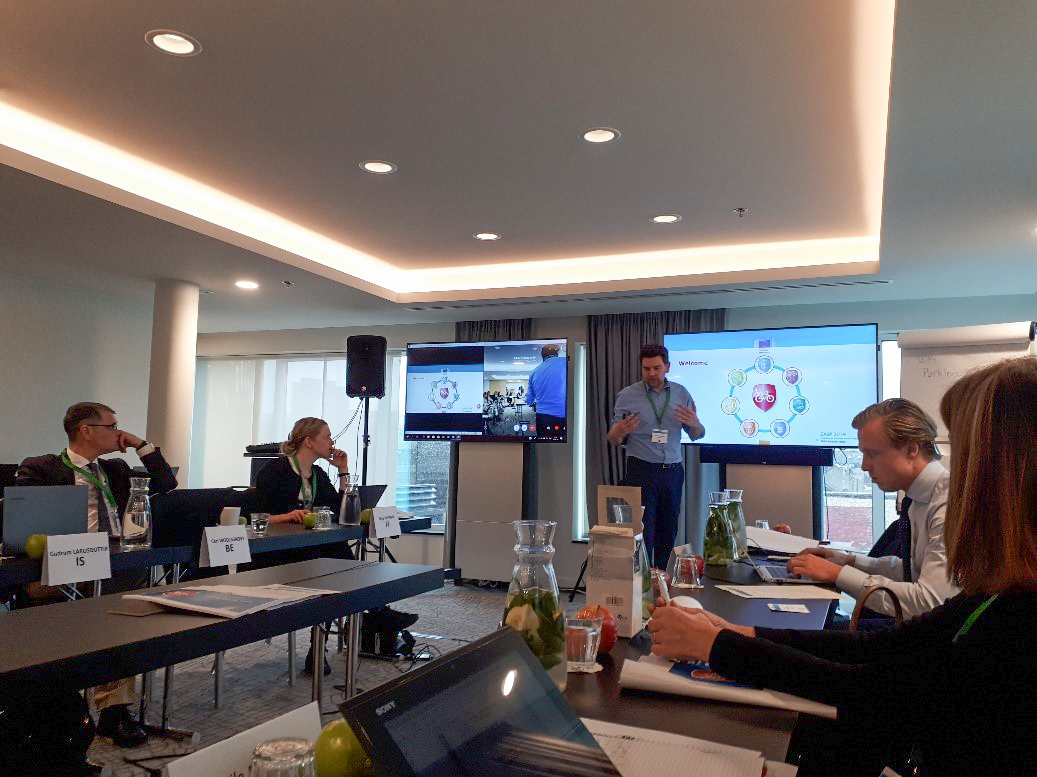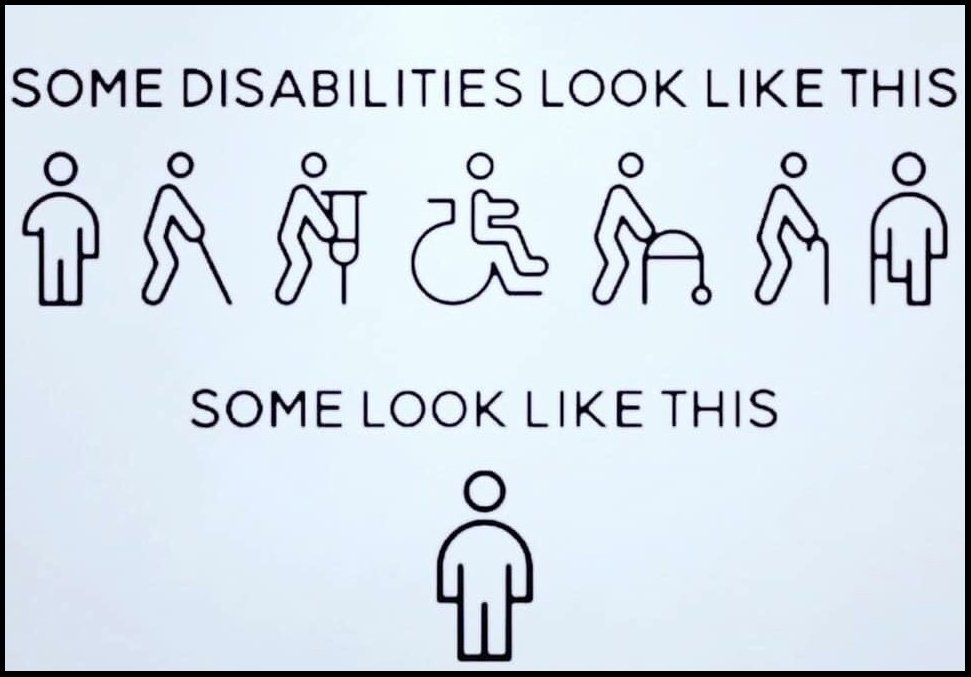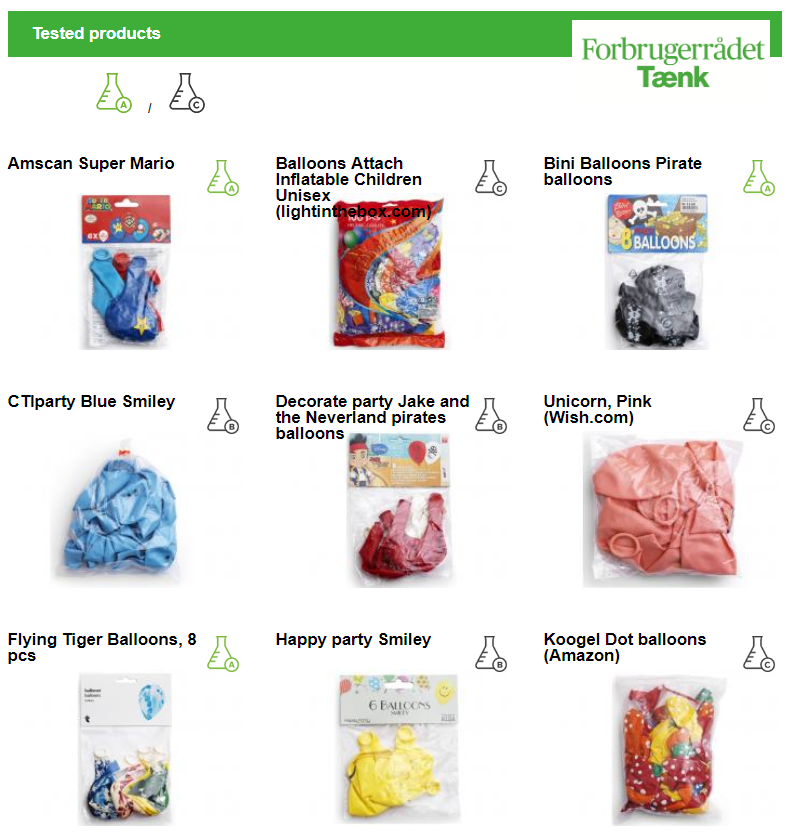Lead story
A more open Transatlantic market?
ANEC and BEUC have published a brief paper in response to the European Commission public consultation on regulatory cooperation activities with the United States of America.
Better exchange of information on standardisation is desirable between the EU and the US. However, the complexity of cooperation on standards linked to different legal frameworks must not be underestimated. An in-depth analysis of technical issues is required, as well as an assessment of economic and environmental impacts, all of which should be performed on a case-by-case basis. Both sides should strengthen consumer representation in standardisation at the national, regional and international levels and ensure sufficient financial support is made available. We suggest cooperation on standards with a view to benefit consumers should focus on the safety and emissions of motor vehicles, and the accessibility of products and services.
The position paper is available on the ANEC website.
Horizontal
European Consumer Consultative Group met in Bucharest
On 3 April, ANEC participated in the European Consumer Consultative Group’s meeting in Bucharest. The ECCG is the Commission's main forum to consult with national and European consumer organisations. This special meeting was dedicated to brainstorming the strengths, weaknesses and feasibility of an app for European Consumers that could either build on ones already considered at the national level (information on chemicals in certain products; a guide to consumer rights) or be novel (such as a pan-European app to aid the submission of complaints). ANEC stressed that it is essential for such apps to meet the new EN 301 549 Harmonised Standard for accessible ICT products.

EESC Opinion on Harmonised Standards
On 20 March, the European Economic & Social Committee (EESC) adopted two Opinions related to European standardisation. The Opinions were made in the context of the Annual Union Work Programme 2019 (INT 878), and the Commission’s Communication of 22 November 2018 on Harmonised Standards (INT 879).
Through the Opinions, the EESC stressed it is essential to strengthen the culture of standardisation in Europe and noted the potential value of developing specific awareness-raising campaigns. The Committee also echoed its wish, put forward in previous Opinions, to facilitate an annual forum on the inclusiveness of the European Standardisation System. ANEC welcomed both Opinions.
The Opinions can be found, in multiple language versions, through the EESC document search here.
Dangerous goods again found in high numbers
In 2018, more than 2,200 notifications of non-food products were made to the EU’s rapid alert system (Safety Gate, formerly known as RAPEX) as failing safety requirements. Toys, motor vehicles and clothing were the product groups with most notifications. The figure is only the tip of the iceberg as each notification may represent thousands of faulty products, and many products are possibly not found at all.
Consumer groups see the fragmented, underfunded and patchy market surveillance system of the European Single Market as an obstacle to bringing this number down. We welcome the planned reform of market surveillance rules which could renew the system from 2021 and was adopted by Parliament on 17 April.
If also adopted by Council, the new Compliance & Enforcement Regulation should enable Member States to improve their efforts to weed out unsafe products from the market. For example, an EU-wide network would be set up to coordinate joint enforcement actions. The performance of individual countries would also come under peer-review. Moreover, an existing database that centralises information from across Europe on non-compliant products would be expanded by adding information on accidents and injuries that are suspected to have been caused by products.
ANEC and BEUC issued a press release to mark the Commission’s publication of the annual report on the rapid alert system.
Child Safety
New market surveillance activities
ANEC was invited as a stakeholder to join the kick-off meetings of the new coordinated market surveillance activities ‘CASP 2019’ funded by DG JUST. The product-related activities under CASP 2019 include Chargers, Batteries, Soft-filled toys, Personal transporters and Children's bicycle seats.
We joined the kick-off meetings for Soft-filled toys and Children's bicycle seats and made a presentation at each. We also contributed to the coordinated activity on Personal transporters. Regarding the CASP for Soft-filled toys, we recommended to focus on soft-filled toys in the form of dolls, and toys partly covered with sequins. Recommendations for the Child bicycle seats included paying particular attention to the restraint system, foot support and chemicals used in the plastic material of the seat, as well as in the cushion and the harness. As regards personal transporters, we recommended to focus on electrical and battery safety. In general, we stressed that products sold online should be included.
Separately, we are pleased that, following our joint letter with BEUC to express concerns on too high limits of boron in slime toys (please see the article in our Newsletter ed 1. 2019) and our presentation at the April meeting of the Toy-ADCO Group, the EC decided to set up an additional coordinated activity on slime toys (CASPSlime2019). We very much welcome this initiative.

CASP 2019 kick-off meeting for Child bicycle seats
Accessibility
Autism Awareness day
To mark World Autism Awareness day on 2 April, ANEC stressed its opposition to any form of discrimination, and renewed its support to help the inclusion and participation in society of people with cognitive and learning disabilities.
How we manage time has a clear effect on our lives and wellbeing. To help ensure equal opportunities for all, we contributed to the new ISO 21802 standard “Assistive products -- Guidelines on cognitive accessibility -- Daily time management” which is intended to aid people with cognitive and learning disabilities in their time management.

Open workshop on Mandate M/420 and prEN 17210
An open workshop will be held in Brussels on 5 June to present work under the second Phase of Mandate M/420. There will be a focus on prEN 17210 ‘Accessibility and usability of the built environment - Functional requirements’. This standard will be the first European Standard on accessibility of the built environment.
During the workshop, experts will present the content of the document, and stakeholders will provide their views on the future standard. The workshop is aimed at the procurement community and legislators, as final users of the deliverables; to representatives of people with disabilities and of older people, and to all stakeholders involved in the building process and in the assurance of the accessibility chain, e.g. architects, engineers, facility managers and ergonomists.
It will take place on 5 June 2019 at the FEB, Brussels. You can register here.
Domestic Appliances
ANEC replies on evaluation of the LVD
In April, ANEC replied to the Commission public consultation on the evaluation of the Low Voltage Directive (2014/35/EU). Our answers were in line with our earlier contributions during the stakeholder interviews (see our Newsletter Ed. 9 2018), online survey and EC Workshop (see our Newsletter Ed. 2 2019).
The adoption of an EC Staff Working Document is expected by the end of 2019.
An approach to address hazardous substances in PPE standards
The CEN-CENELEC Sector Forum on Personal Protective Equipment (PPE) has published “An approach for dealing with hazardous substances in standards for PPE”. The aim of the document is to provide a coherent approach in order to face the complexity of the issue. It is not aiming at imposing any obligation on Technical Committees (TCs) to set limit values but to assist them when they decide to do so. However, as suggested by ANEC, the document encourages TCs to include normative provisions which address chemicals in PPE, if these are relevant for the standardised product. We welcome the document.
Sustainability
EP resolution on revision of Drinking Water Directive
On the 28 March, the European Parliament adopted a legislative resolution on the proposal for a Directive on the quality of water intended for human consumption (the DWD recast). The proposal aims to boost citizens’ confidence in the use of tap water.
The EP Resolution changes the EC proposal in several areas, including ensuring universal access to drinking water; use of a risk-based approach; inclusion of parameters for drinking water quality; the reduction of leakages, and ensuring the transparency of information to consumers. Parliament also introduced minimum hygiene requirements for products, substances and materials in contact with water intended for human consumption. We welcome these improvements to the proposal which align with the ANEC position on the DWD revision.
The proposal is now under negotiation in trialogue.
Digital Society
73rd ETSI General Assembly
John Ketchell, Chair of the ANEC Digital Society WG and ETSI 3SI Advocate, attended the 73rd ETSI General Assembly meeting. During the meeting, the ETSI members re-elected the ETSI Director General, Luis Jorge Romero, by an overwhelming majority on the first ballot. ANEC welcomed Mr Romero’s re-election, noting the steps he has taken to deepen the inclusiveness of the ETSI standards development process, although more needs to be done.
As 3SI Advocate, Mr Ketchell gave an oral report of the state of play, referring in particular to the key issue of how the ETSI Directives address the Annex III organisations, notably in the submission of comments on ETSI draft standards.
A first step towards trustworthy AI
On 8 April, the Commission’s High-Level Expert Group on Artificial Intelligence (HLEG) published its “Ethics Guidelines for Trustworthy AI”. On this occasion, ANEC together with AccessNow and BEUC - members of the HLEG - released a statement in support of these guidelines. We stressed, however, that the guidelines can be only a first step. The EU has the responsibility to ensure that fundamental (consumer) rights are respected and bring benefits to all people. Consumers will trust AI systems only if they are sure their rights are respected and protected. Because of the aspects of AI systems, there is need to update legislation, standards and enforcement procedures.
You can find a new definition for Artificial Intelligence available here and the Communication from the Commission, “Building Trust in Human Centric Artificial Intelligence”, here.

Services
New studies on E-Commerce and future of Postal Services
ANEC continues to contribute to discussions on standards for the quality of, and access to, postal services. In line with this, several new studies have become available. One is the “Development of Cross-border E-commerce through Parcel Delivery”. This study was developed by WIK-Consult, on behalf of the European Commission’s DG GROW, and can be downloaded here (see Sector studies 2019).
A WIK discussion paper, “German delivery market as an infrastructure for European e-commerce”, has also been published. This discusses cross-border parcel delivery services, and the 2018 Cross-border Parcels Delivery Regulation which calls for better price transparency. The English summary is available here.
Further to this, the Commission has commissioned WIK-Consult to carry out a study on the future of postal universal service in Europe. ANEC has been consulted as a stakeholder.
You can find the questionnaire for the study, “User Needs in the Postal Sector”, here.
Traffic and Mobility
Updates on new measures known as the General Safety Regulation
Improved minimum vehicle safety standards are absolutely critical to reduce deaths and serious injuries on European roads. We therefore welcomed the strong position taken by the European Parliament in its Resolution (2017/2085(INI)), replying to the plans outlined by the Commission in the document Saving Lives: Boosting Car Safety in the EU, as well as the recent vote of its Internal Market & Consumer Protection (IMCO) Committee on the package of vehicle safety & pedestrian protection measures known as the General Safety Regulation. In support of this, ANEC and its partners addressed a letter to the President of the Parliament on the review of the vehicle safety and pedestrian safety regulations. We noted EU vehicle safety standards were last updated almost a decade ago. With 70 deaths every single day on our roads, we cannot afford to wait any longer for long overdue change.
Read more on this topic here.
News from ANEC member countries
Danish Consumer Council finds 7 out of 15 balloons unsafe
The Danish Consumer Council THINK Chemicals tested 15 balloons for the release of nitrosamines. Balloons are popular toys with children and the market offers a variety. Although balloons are not recommended for children under three years, many children of that age come into contact with the toys. The test focused on the release of nitrosamines as several studies have shown that carcinogenic nitrosamines are released when in contact with saliva. Of the balloons tested by the Danish Consumer Council, 7 types of balloons tested released dangerous chemicals above the legal limit values when in contact with saliva.
Read about the test by Danish Consumer Council THINK here: https://bit.ly/2UNSfBE.

| List of meetings 2019 |
For comments or if you wish to write an article for the ANEC Newsletter, please contact: Ieva GALKYTÉ (This email address is being protected from spambots. You need JavaScript enabled to view it.).


